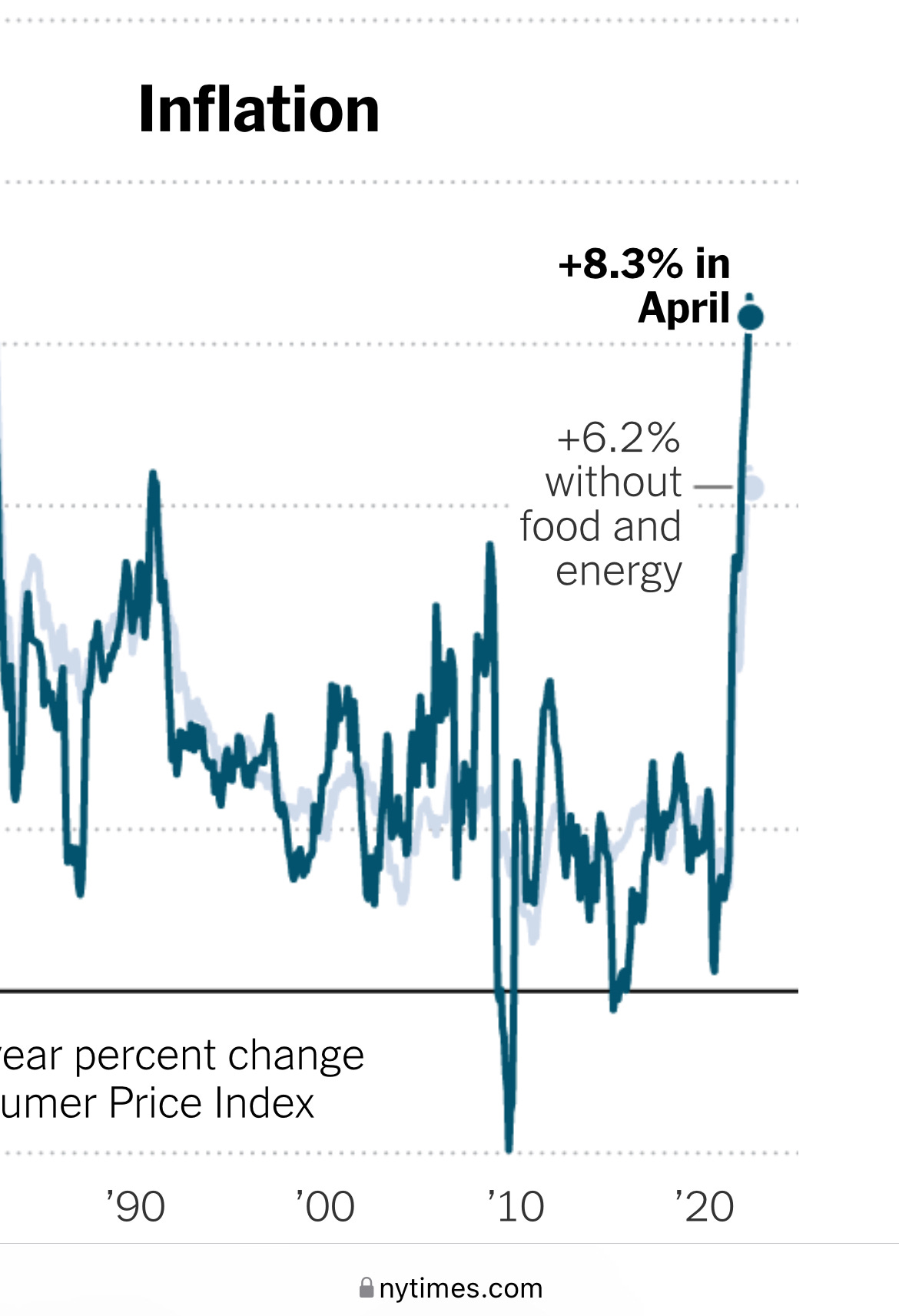On the banality of inflation And – yet again – the stupidity of our (Democratic) elites Alex Berenson
https://alexberenson.substack.com/p/on-the-banality-of-inflation?s=r
Just like Jimmy Carter did 45 years ago, Uncle Joe and his merry band of wokesters are learning the hard way that Americans hate inflation.
Even a recession isn’t as politically damaging.
And guess what? We’re right to hate it.
I’ve been writing a technical piece on the causes of inflation and what it means economically (before I covered Big Pharma, I wrote about Wall Street – never thought I’d miss bankers, but at least bankers are honestly greedy).
I’ll come back to that piece. But I’m putting it aside for now to focus on an aspect of rising prices that I’ve never seen properly discussed – how they make people feel. Even when jobs are plentiful, even when wages are rising, even when the economy is generally strong, people have a visceral reaction to price shocks.
Up up and away!
(Note that the chart below understates the real impact of what’s happened in the last year; annual inflation would be closer to 15 percent if we calculated it now as we did in the 1970s.)
—
So why? Why do we hate inflation so much?
Because – and I will spare you the details of the reasons why, if you want them you can read the other piece – INFLATION IS AVOIDABLE. Inflation is a tax on the poor and a warning of potential supply shocks and economic imbalances that must be corrected. But most of all it is avoidable with proper government policy.
Almost always. Recessions are not avoidable (and efforts to avoid them too strenuously can lead to inflation), but inflation is. How do I know? In part because we avoided it for a very long time. Which is why I think the current shock is particularly frustrating to anyone over 40.
Inflation comes when politicians and central bankers refuse to think even a few months ahead. It comes when they become addicted to the cheap growth that comes from cheap money.
Low inflation, especially in a consumer-centered society like the United States, means the free market working as promised (and no one should be surprised that education and healthcare, the two major sectors where government is most involved and price transparency is weakest, have had the fastest-rising costs of any sectors for decades).
Most of all, low inflation is a promise from government to its citizens: you have enough things to worry about. This won’t be one. Let the PhDs take care of this one.
Another elite promise broken.
But don’t worry, you can trust them on vaccines!
Comments are closed.

